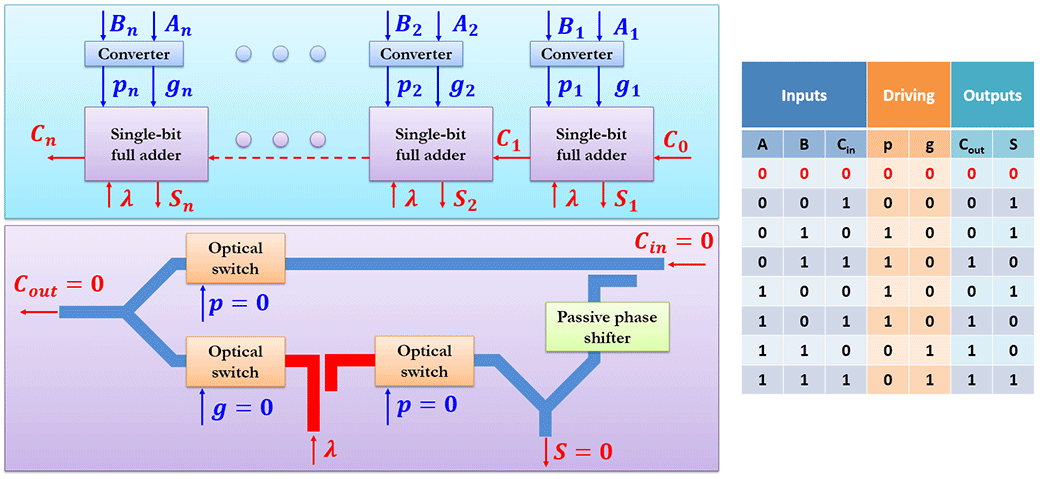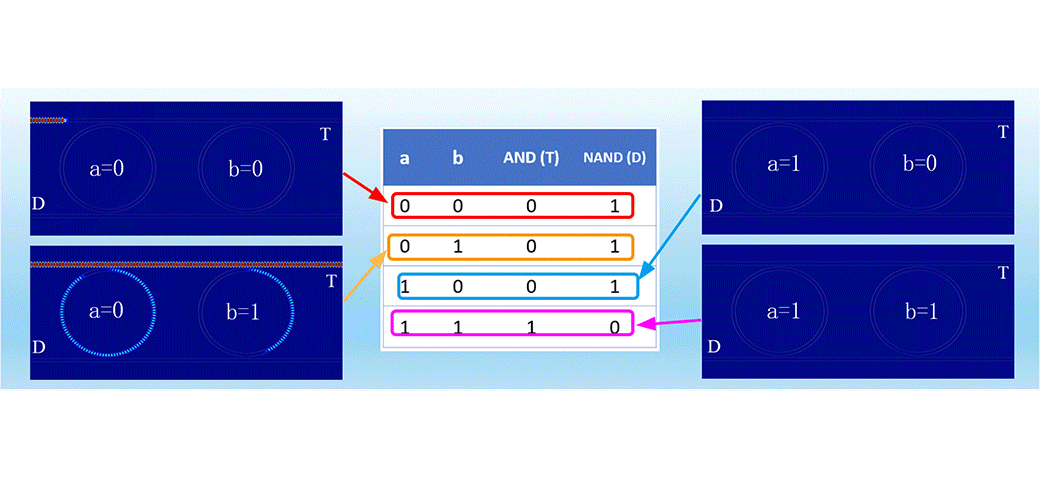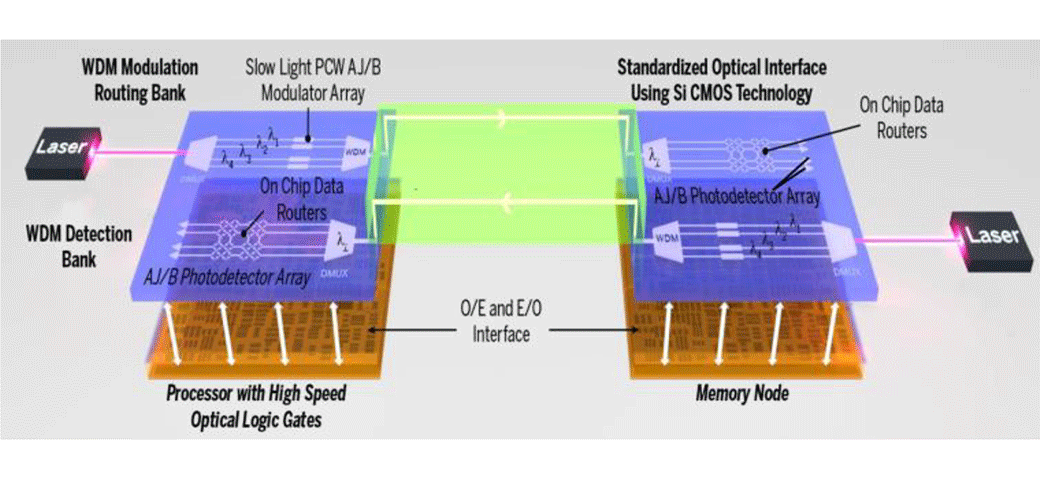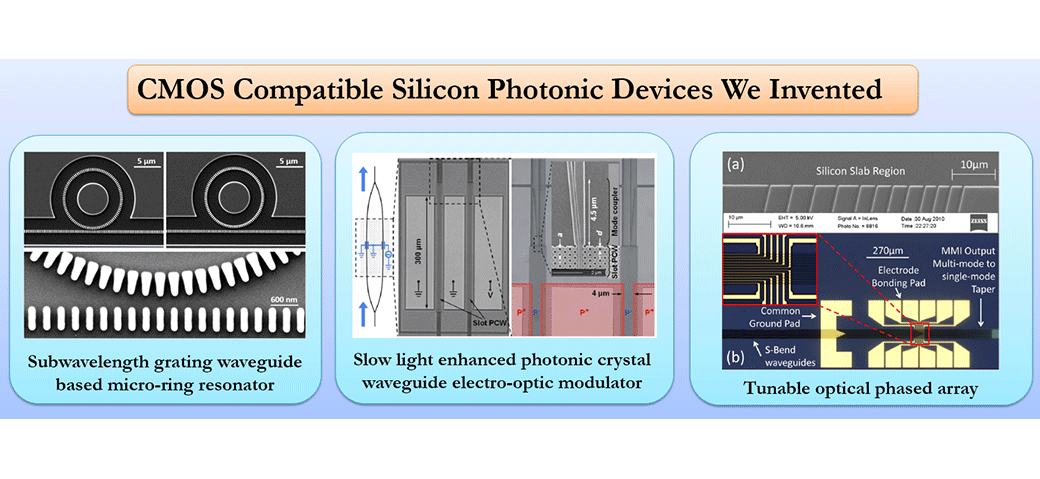UT team (Chenghao Feng, Jiaqi Gu, and Hanqing Zhu) supported by the MURI project (PIs: Profs. Ray T. Chen and David Z. Pan) has been recognized with a 2022 Robert S. Hilbert Memorial Optical Design Competition award. The team received an award for their project titled, “A compact 4×4 butterfly-style silicon photonic-electronic neural chip for hardware-efficient deep learning.” They used Synopsys Photonic Solutions software to design a chip that supports an optical neural network for next-generation neurocomputing.
IEEE Electronics Packaging Society Symposium on Recent Progress of Photonics-Electronics Fusion Technologies Feb. 10, 2022, Japan. Download.
Mission Statement:
Even if the continuation of Moore's law meets a bottleneck, the increasing trend of network connections and bandwidth consumed is accelerating with no foreseeable sign of halting because of the bandwidth-hungry applications. The total amount of content passing through the world’s networks is expected to increase to 35 Zettabytes(10^21)with unprecedented power consumption by 2020, meaning that by the end of this decade, with current technologies, service providers will need an astonishing over 20 times of power consumption they have in 2015.
Optoelectronic interconnects and optical logic gates provide key solutions to drastically reduce the power to modulate (e-to-o conversion), processing, transport, and demodulate (o-to-e) high speed signals with power consumption down to attojoule/bit (AJ/B) level. In this program, we propose a myriad of ultra-low power nanooptoelectronic devices for intra- and inter-chip optical interconnects and computing. Power saving and performance enhancement will be achieved with one- to two-orders of magnitude better than existing electronic counterparts
Download: Mission Statement Presentation





